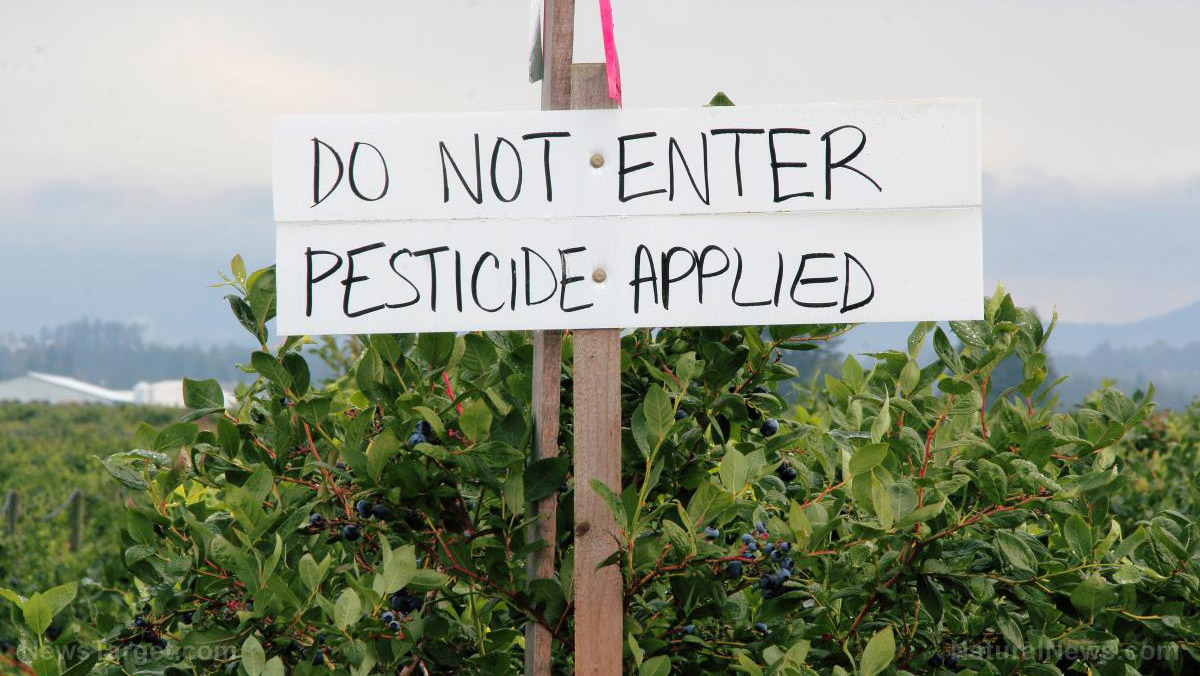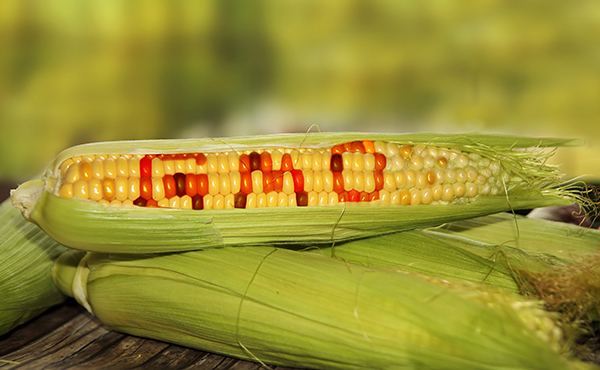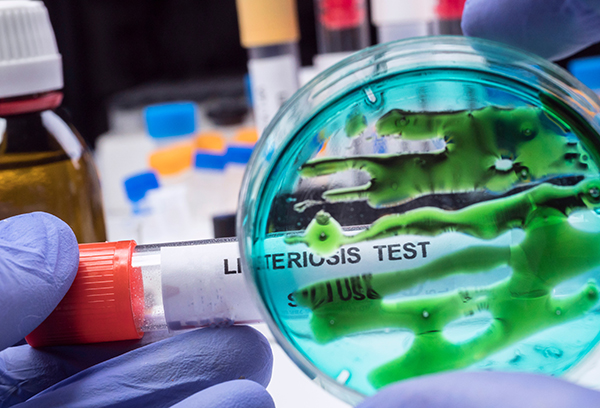Cracker sandwiches recalled over deadly ingredient that could cause ALLERGIC REACTIONS
07/19/2025 / By Olivia Cook

- The FDA recalled RITZ Cracker Sandwich products due to mislabeling: “Peanut butter” fills were incorrectly labeled as “cheese.” Affected cartons (sizes 8–40 packs) sold at major U.S. retailers had outer peanut warnings but mislabeled inner packs. No injuries were reported, but the recall was precautionary for allergen safety.
- For 3M+ Americans with peanut allergies, accidental exposure can cause anaphylaxis—potentially fatal within minutes. Peanut allergies have tripled among children (1997–2008), with 6M Americans now affected.
- The root causes of rising allergies include delayed exposure (early peanut introduction such as in Israel reduces allergy rates); genetics, skin barrier damage, and dry-roasting peanuts (increases allergenicity); and the hygiene hypothesis (overly sterile environments may trigger immune overreactions to harmless proteins.)
- Allergy pertains to an immune response where trace amounts cause life-threatening reactions (e.g., peanuts, shellfish). Sensitivity/Intolerance pertains to non-immune reactions with milder symptoms (e.g., bloating, fatigue). Administer epinephrine immediately for allergic reactions and call 911.
- Mislabeling is a recurring issue (e.g., RITZ’s Canada recall for undeclared milk). Consumers are advised to double-check outer/inner labels; monitor FDA recalls and learn hidden allergen names (e.g., casein for milk); and educate caregivers on anaphylaxis signs and allergy action plans.
Cracker sandwiches from a popular brand have been recalled over a deadly ingredient that could cause serious allergic reactions in people who eat them.
In early July, the Food and Drug Administration (FDA) issued an urgent recall of several RITZ Cracker Sandwich products. The affected products were pulled from shelves after it was discovered that “peanut butter”-filled sandwiches were mislabeled as “cheese.”
Affected products include four carton sizes of RITZ Cracker Sandwiches widely sold across major U.S. retailers nationwide, such as CVS, Dollar General and Target. The impacted cartons – ranging from eight to 40 individual snack packs – had clear peanut warnings on the outer packaging. But inside, some individual packs were mislabeled as “cheese”-filled sandwiches.
The FDA says the issue stems from a “supplier-level labeling error.” No injuries have been reported so far, and the recall was issued as a precaution. But for families living with food allergies, it is another close call in a growing list of preventable risks.
In a world without peanut allergies, this might be a minor packaging flaw. But for three million Americans with peanut allergies, it is far from harmless. One mislabeled snack handed unknowingly to a child or eaten on the go, can trigger anaphylaxis – a severe, life-threatening allergic reaction that can lead to constricted airways, collapse and even death within minutes.
Not just as a snack recall, but a systemic red flag
This isn’t the first time RITZ has faced this problem. Just months ago, a similar recall in Canada involved “undeclared milk” allergens. And they’re not alone. Mislabeling has become an alarming common cause of food recalls in the U.S., revealing deeper cracks in our food regulation and packaging oversight systems.
Peanut allergies aren’t a new phenomenon, but they are becoming more widespread and more severe. Between 1997 and 2008, cases of peanut allergy in children more than tripled, a trend that has continued into adulthood. Today, roughly six million Americans are affected.
Why are peanut allergies increasing in prevalence? Researchers have some ideas but no single explanation. Here’s what they believe is driving the rise in peanut allergies:
- Delayed peanut exposure: Ironically, well-meaning efforts to delay peanuts in children’s diets may have backfired. In contrast, countries like Israel – where infants are introduced to peanut snacks early – report significantly lower allergy rates. (Related: Trying to desensitize children to peanuts can make allergies WORSE, warn researchers.)
- Genetics: Children with allergic parents are more likely to develop allergies themselves.
- Skin exposure: Daily washing with soap may damage skin barriers, making it easier for peanut proteins to enter the body in unintended ways.
- Food preparation methods: Dry roasting peanuts at high temperatures increases their allergenicity compared to boiling or frying.
- Immune imbalance: According to the “hygiene hypothesis,” growing up in overly sterile environments – with limited exposure to everyday microbes like animals, dirt and other people – may prevent the immune system from developing proper tolerance. As a result, it can become overly sensitive and mistakenly identify harmless substances, such as food proteins found in peanuts and tree nuts, as dangerous invaders. This triggers the immune system to release chemicals, like histamine, which leads to the symptoms of an allergic reaction, such as difficulty breathing, hives and swelling.
What emerges is a portrait of modern life out of sync with the immune system’s expectations – a world where what’s on people’s plates can become a dangerous threat.
Allergy vs. intolerance vs. sensitivity: Why knowing the difference could save a life
A common source of confusion – and delayed treatment – is mistaking a food allergy for a sensitivity or intolerance. But they are not the same thing:
- Food allergy: A true immune response, even trace amounts of the offending food (like peanuts, tree nuts or shellfish) can trigger symptoms ranging from hives to full-blown anaphylaxis. Immediate intervention is critical.
- Food sensitivity: This still involves the immune system but tends to cause milder, delayed symptoms, like fatigue, joint pain or mood changes that are often harder to pinpoint.
- Food intolerance: This is a digestive issue, not an immune response. Common examples include lactose intolerance, where the body lacks the enzyme needed to digest dairy, and gluten intolerance, where consuming gluten (a protein found in barley, rye and wheat) causes gastrointestinal discomfort but does not trigger an immune reaction like celiac disease does. Symptoms such as bloating, diarrhea or stomach cramping can be unpleasant but are not life-threatening.
Understanding these distinctions isn’t just semantic. It can be deadly. Confusing lactose intolerance with a milk allergy, for example, could lead someone to ignore life-threatening symptoms until it’s too late.
Every second counts whenever someone is having an allergic reaction. Knowing the signs and what to do could save a life. Watch out for these signs of a severe allergic reaction or anaphylaxis:
- Difficulty breathing or noisy wheezing
- Swelling of the tongue, lips or throat
- Hives, rashes or itching
- Sudden dizziness or fainting
- Vomiting and abdominal cramps
- Pale or “floppy” behavior in young children
Here’s what to do:
- Administer epinephrine (EpiPen) immediately.
- Call 911, even if symptoms subside.
- Lay the person down, unless they are vomiting or having trouble breathing.
- Do not delay. A second wave of symptoms can return even after initial recovery.
While manufacturers must be held accountable, consumers also need tools to stay safe:
- Always read both the outer box and individual wrappers. Do not assume they match.
- Stay updated on food recalls. Sign up of alerts from the FDA’s recall site.
- Learn the “hidden” names of food allergens, like albumin, egg lecithin or ovovitellin (eggs); casein, non-fat milk solids or whey (milk); lecithin (soy), etc.
- Talk with a medical professional about allergy testing, especially if symptoms have been vague or inconsistent.
- Educate schools or caregivers about allergy action plans and signs of anaphylaxis.
Visit CleanFoodWatch.com for more similar stories.
Watch this clip that talks about peanut allergies.
This video is from the Daily Videos channel on Brighteon.com.
More related stories:
Food allergies: Symptoms, allergens, testing and nutrition tips.
Some people who think they have food allergies may actually have a food intolerance.
Got an egg allergy? Iron treatment may help, says research.
Sources include:
Submit a correction >>
Tagged Under:
allergen, allergic reactions, anaphylaxis, cracker sandwiches, Dangerous, food allergy, food recall, food safety, food science, ingredients, mislabeling, peanut butter, peanuts, Product recall, products, research, Ritz Cracker Sandwich
This article may contain statements that reflect the opinion of the author
RECENT NEWS & ARTICLES
StopEatingPoison.com is a fact-based public education website published by Stop Eating Poison Features, LLC.
All content copyright © 2018 by Stop Eating Poison Features, LLC.
Contact Us with Tips or Corrections
All trademarks, registered trademarks and servicemarks mentioned on this site are the property of their respective owners.




















